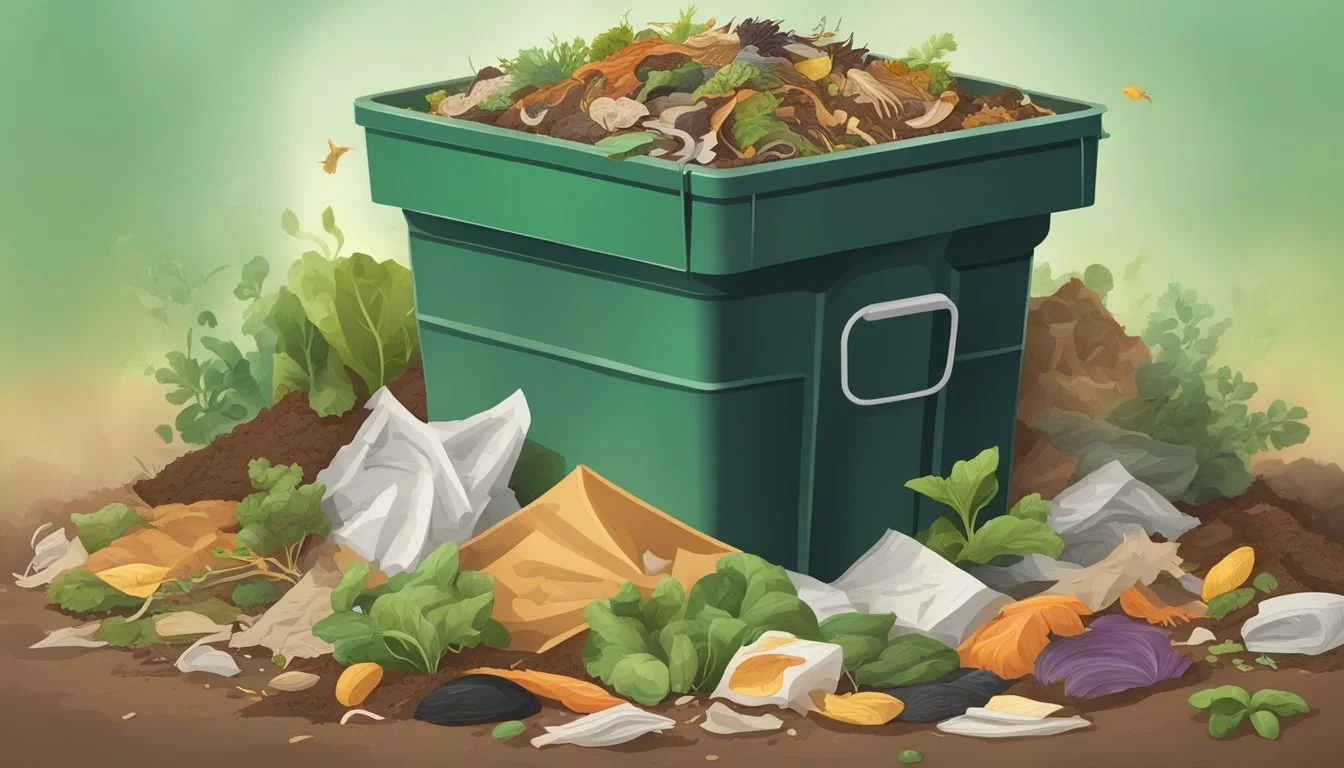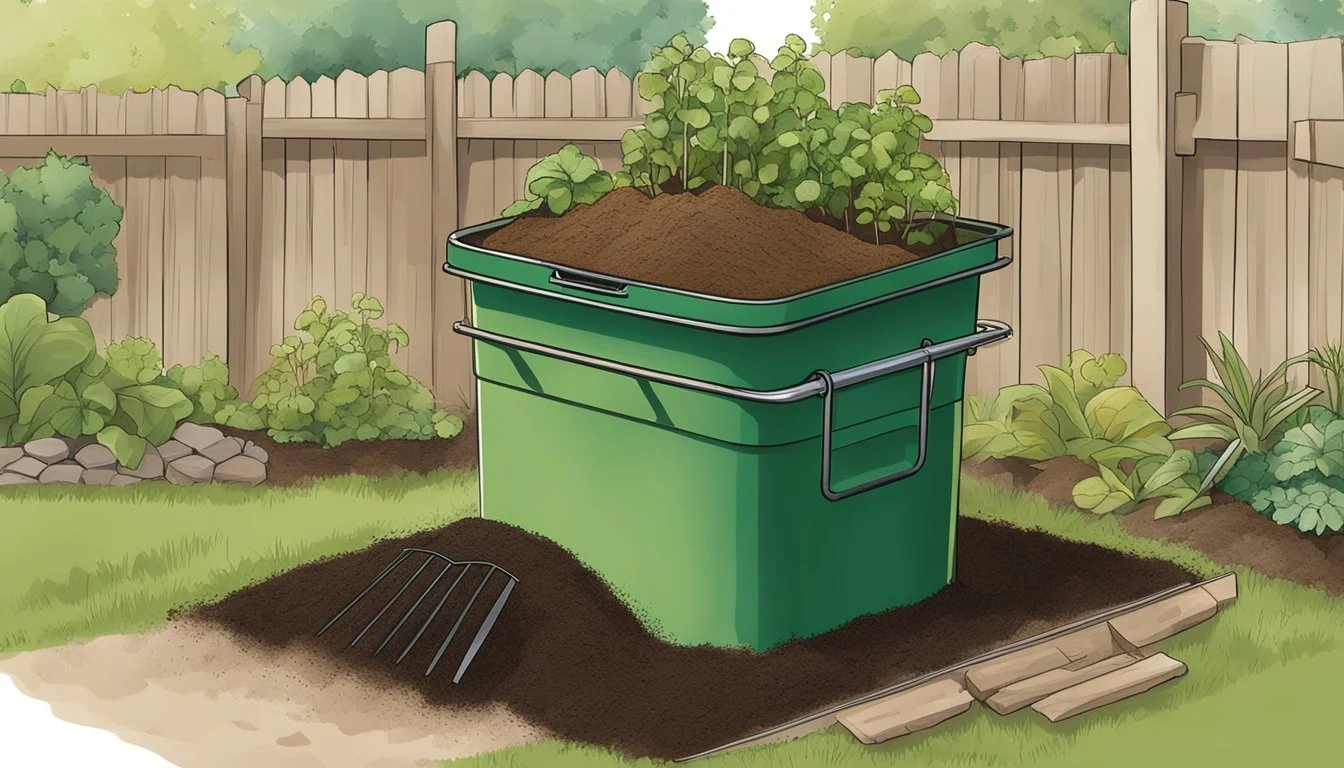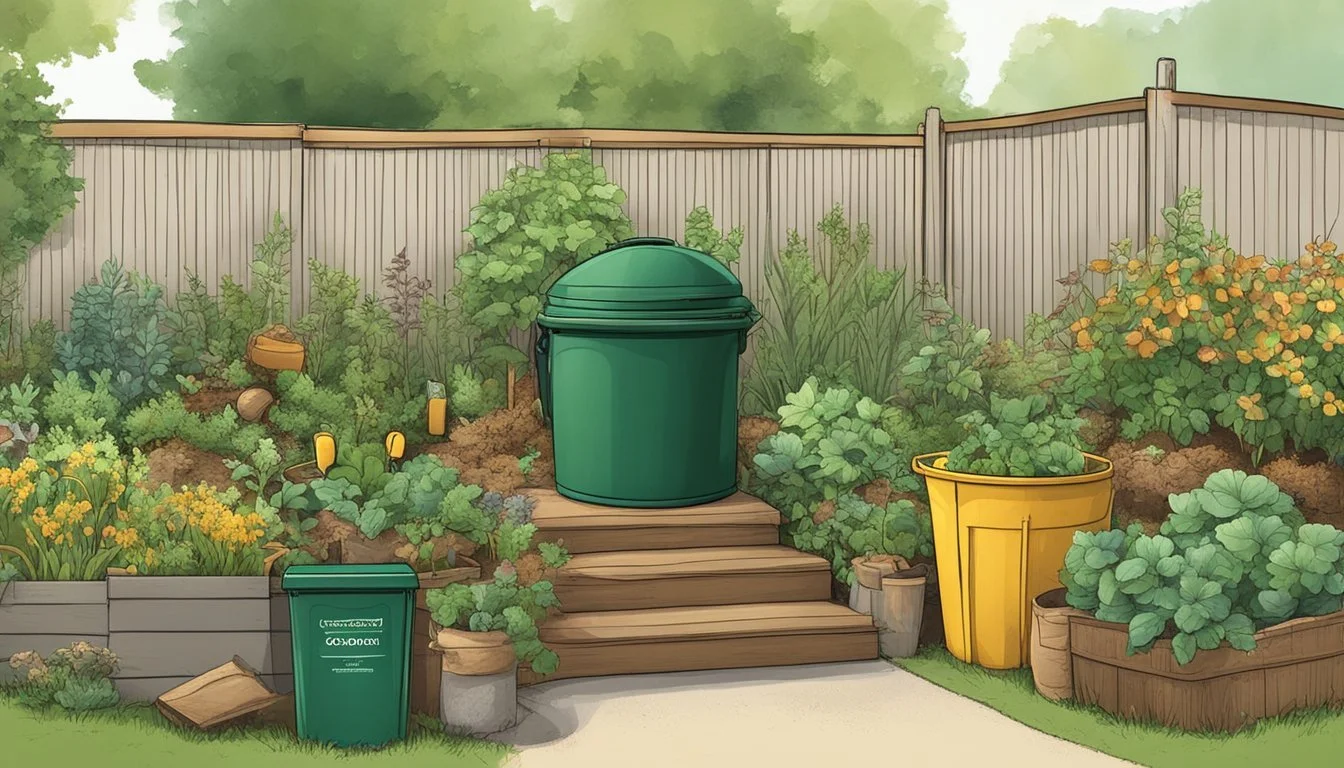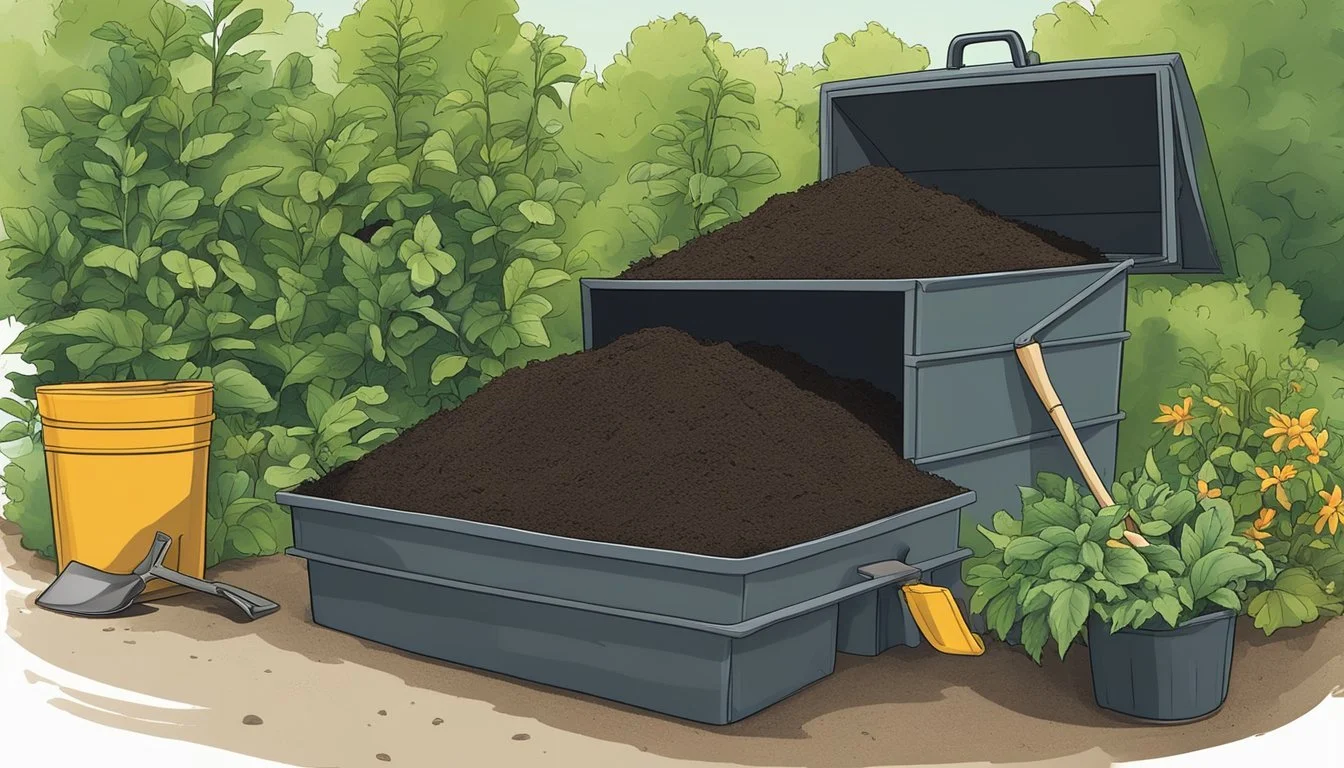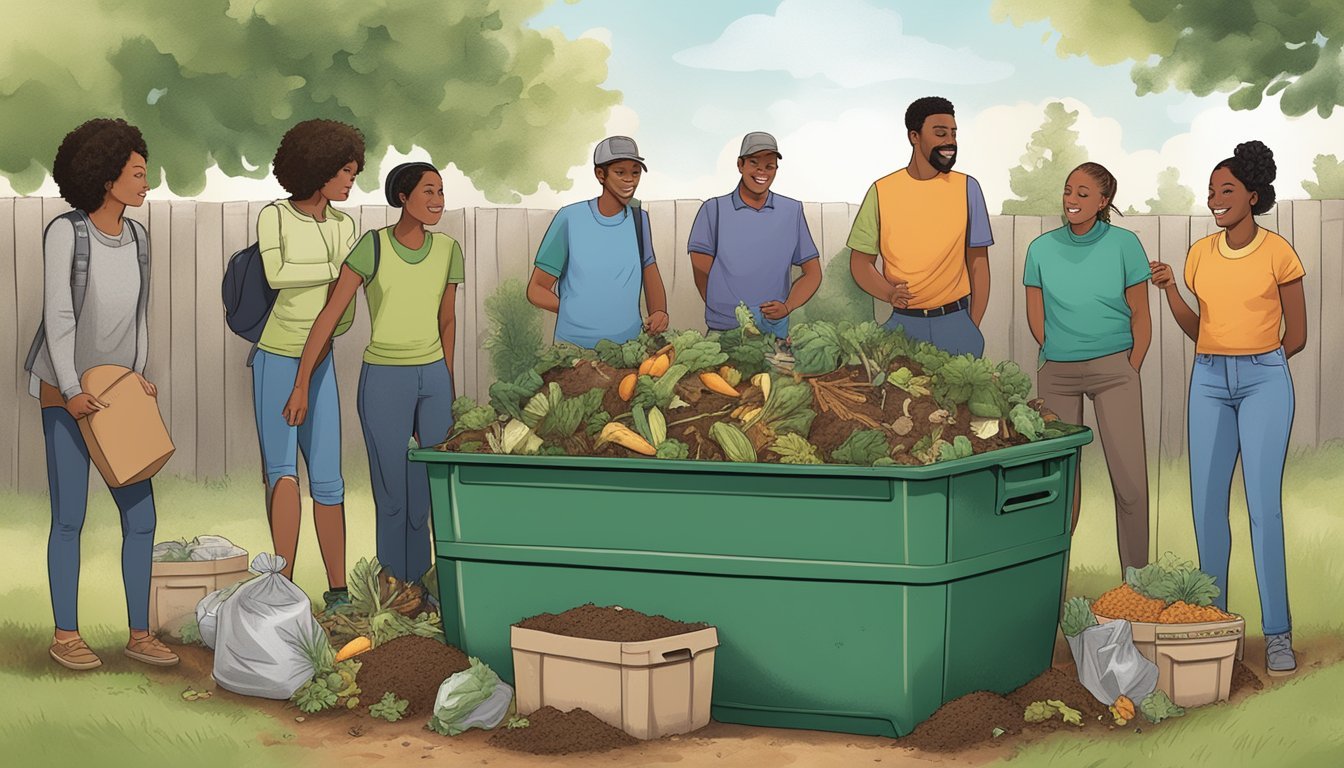Guide to Composting in Columbia, MO
Essential Tips for Local Residents
Composting is a simple and natural process that transforms organic waste into valuable fertilizer, benefiting both gardens and the environment. In Columbia, Missouri, residents have access to resources and community programs aimed at making composting an accessible and rewarding practice. The city provides information on compost and mulch operations, supporting locals in their efforts to turn kitchen scraps and yard waste into nutrient-rich soil amendments. By engaging in composting, Columbians can contribute to waste reduction, soil health, and the reduction of greenhouse gases, reinforcing a commitment to sustainability.
Local initiatives, like those described by the Missouri Department of Natural Resources, outline the importance of composting in waste management statewide. These efforts highlight how food scraps and yard waste constitute a significant portion of what ends up in landfills, where they could otherwise be repurposed. Through educational guides such as the University of Missouri Extension's Making and Using Compost, citizens gain knowledge on creating their own compost piles, understanding the balance of greens, browns, air, and moisture required to create effective compost.
For those looking to enhance the quality of their garden soil, reduce their environmental footprint, or simply learn a new sustainable habit, composting serves as a practical solution. The process is not only about waste reduction; it also supports local ecosystems. Composting offers an excellent way for residents of Columbia to take an active role in environmental stewardship while reaping the benefits of improved soil and plant health.
The Basics of Composting
In Columbia, Missouri, understanding composting fundamentals aids residents in reducing waste and enriching their gardens. This process transforms organic materials into valuable soil amendment, contributing to a healthier environment.
What is Composting?
Composting is the aerobic, biological process by which microorganisms break down organic materials into a stable, nutrient-rich substance known as compost. This material then acts as a powerful soil conditioner, bringing life and vitality to the garden. It involves layering "greens," such as vegetable scraps, with "browns," like dry leaves, and allowing them to decompose naturally.
Benefits of Composting
Reduces Waste: By recycling yard and kitchen waste, which can comprise a significant portion of what a household throws away, composting significantly reduces the strain on local waste management systems.
Enhances Soil: Compost adds vital nutrients to the soil, promoting healthier plant growth and improving soil structure, which can benefit your garden immensely.
Environmentally Friendly: Composting supports the environment by reducing the amount of organic waste sent to landfills and cutting down on methane emissions, a potent greenhouse gas that contributes to climate change.
Setting Up Your Compost System
To successfully maintain a compost system, one must choose an appropriate location, select a suitable compost bin, and understand the fundamentals of building a compost pile. This section will guide you through these essential steps to create a thriving compost system in Columbia, MO.
Choosing a Location
Select a spot for the compost bin that is conveniently accessible yet away from direct windows to reduce any potential odors entering your home. It should be on level ground, preferably in a shaded area to protect it from extreme temperatures that could hinder the composting process. Proximity to a water source will also make it easier to manage the moisture content of your compost pile.
Selecting a Compost Bin
A variety of compost bins are suitable for home composting. Some Columbia residents may prefer an enclosed bin to keep out pests, which can be found through local composting operations. The size of the bin should reflect the amount of organic material you anticipate composting. Bins can be constructed from wire, wood, or even repurposed materials, as long as they allow for proper aeration and moisture retention.
Building a Compost Pile
To construct the compost pile:
Begin with a layer of coarse material, such as sticks or straw, to allow airflow at the base.
Add organic materials in alternating layers of greens (rich in nitrogen) and browns (rich in carbon).
Keep the pile moist, like a wrung-out sponge, to encourage microbial activity.
Incorporate heat, which is essential for decomposing matter, by ensuring your pile is at least 3 feet high and wide.
Turn the pile regularly to introduce air, which helps maintain the right temperature and speeds up decomposition.
Cover the pile with wood, carpet scraps, or a tarp to retain moisture and heat, and to prevent it from becoming too wet.
What to Compost
Creating a successful composting system in Columbia, MO involves balancing green and brown materials. "Green" materials are rich in nitrogen, needed for the composting process, whereas "brown" materials provide essential carbon. Not all household waste is appropriate for composting, with certain items best left out.
Green Materials for Nitrogen
Green materials are essential for providing nitrogen, which acts as a protein source for the microorganisms that break down the compost. Common green materials include:
Kitchen scraps: Fruit and vegetable peels, coffee grounds, and eggshells.
Grass clippings: Freshly cut and preferably untreated with chemicals.
These materials should be mixed thoroughly with brown materials to maintain a balanced compost pile.
Brown Materials for Carbon
Brown materials add carbon to your compost, which functions as an energy source for decomposition:
Leaves: Dried leaves, ideally shredded to speed up decomposition.
Twigs and wood chips: Smaller pieces decompose more quickly and should be used sparingly to keep the compost aerated.
maintaining a good balance between green and brown materials helps to create an efficient composting system.
Items to Avoid in Your Compost
Not everything can or should be composted due to potential health risks or pests. Among the items to leave out are:
Meat, dairy products, and bones: These can attract pests and lead to unpleasant odors.
Diseased plants: These can spread pathogens within the compost and to your garden.
By carefully selecting appropriate items for composting, residents of Columbia can enjoy the many benefits of this eco-friendly activity.
Composting Techniques
Composting in Columbia, Missouri can significantly reduce landfill waste and enrich the soil. Understanding the various composting techniques and their specific requirements like aeration, temperature, and organic matter balance is essential for success.
Traditional Composting
Traditional composting involves collecting organic materials such as leaves, grass clippings, and food waste, which are then placed in a compost bin or pile. To accelerate decomposition, it's crucial to achieve a good balance of nitrogen-rich materials, like vegetable scraps, and carbon-rich materials, such as dry leaves or sawdust. Regular turning of the pile with a shovel or turning tool promotes aeration and maintains consistent temperatures, fostering efficient breakdown of organic matter and supporting plant growth.
Vermicomposting
Vermicomposting uses specific types of earthworms, usually red wigglers, to break down organic waste. This technique is more suitable for indoor composting or areas with limited space. The worms consume organic matter such as food waste and produce castings, a nutrient-rich byproduct. It's vital to maintain ideal conditions for the worms, like proper moisture and temperature, to ensure effective decomposition and improve soil quality.
Key Factors for Decomposition
Success in composting hinges on key factors:
Aeration: Regular mixing or turning the pile provides oxygen that's essential for microbes to break down organic matter.
Temperature: A compost pile should ideally be between 135-160°F to help kill pathogens and weed seeds while allowing microorganisms to thrive.
Moisture: The pile needs to be moist like a wrung-out sponge to support the decomposition process.
Balance of Materials: A proper ratio of green materials (nitrogen) to brown materials (carbon) facilitates the best composting conditions.
By carefully managing these aspects, Columbia residents can efficiently transform waste into a valuable asset for their gardens and environment.
Maintaining Your Compost
Maintaining a compost pile in Columbia, MO requires regular attention to aeration, moisture, and heat levels. One must also be adept at troubleshooting common issues to ensure a successful decomposition process.
Aeration and Turning the Pile
Proper aeration is essential for compost because it introduces oxygen, which is necessary for aerobic bacteria to break down organic materials. Turning the pile every week or so can help maintain sufficient oxygen levels. This process distributes air throughout the compost, encouraging microbial activity and preventing unpleasant odors. Tools such as a compost fork or a specialized compost turner can make this task easier.
Maintaining Moisture and Heat
The right amount of water and heat in a compost pile ensures that microorganisms remain active and the composting process remains efficient. The pile should be as moist as a wrung-out sponge to retain moisture without becoming soggy. If the compost is too dry, it impedes microbial activity, but if it's too wet, it could lead to anaerobic conditions and odor problems. Covering the pile with a tarp can help conserve heat and moisture, especially during cooler months.
Ideal moisture level: 40-60%
Temperature to aim for: 135-160°F (maintained for bacterial activity)
Troubleshooting Common Issues
If one notices the pile is not heating up, it might be due to lack of aeration, moisture, or mixing. Check the center of the pile with your hand; if it's not warm, turn the pile more frequently and assess moisture levels. Conversely, if the pile is too hot, it could mean that it's too small or lacks moisture. Add more materials to increase the size and dampen if it's too dry. Odors can indicate improper aeration or excess moisture. Add more browns (carbon-rich materials) to absorb excess moisture and turn the pile to introduce air.
By consistently monitoring and adjusting these parameters, one can maintain a healthy compost system that is both beneficial for the garden and the environment.
Utilizing Finished Compost
Once compost has fully decomposed, it becomes a powerful tool for gardeners, transforming into a nutrient-rich soil amendment that can benefit plants in numerous ways.
Identifying Ready Compost
Texture and Aroma: Ready compost should be dark, crumbly, and have an earthy smell—it should no longer resemble the original organic materials. If the compost has white, thread-like structures and small insect larvae, it's a sign that beneficial microorganisms have been at work, further indicating readiness.
Test Method: One practical way to test compost maturity is described by the MU Extension, where compost should not reheat more than a few degrees above the ambient air temperature when appearing physically mature.
Applying Compost to Your Garden
Incorporation into Soil: Mix compost into your garden soil to a depth of 6 to 8 inches to improve soil structure and enhance its water retention abilities. The City of Columbia’s guidelines also suggest using compost as a mulch to conserve moisture and suppress weeds.
Dosage: When using compost as a natural fertilizer, a thin layer of about a quarter to half an inch applied to lawns can provide time release nutrients, reducing the need for synthetic feeds. For flower beds and vegetable gardens, a layer of 1-3 inches is beneficial for feeding plants and improving the overall health of the garden soil.
Applying finished compost to your garden allows you to close the loop on the organic cycle by returning decomposed matter back to the soil, thus continuing the sustainable practice of composting.
Community Composting in Columbia
In Columbia, Missouri, the community benefits from a robust composting program established by the city, integrating workshops, resources, and support to encourage and educate residents about sustainable waste management practices.
City-Sponsored Compost Workshops
The City of Columbia organizes compost workshops that are open to the public and cover the essentials of composting. Residents can take advantage of these workshops to learn about composting techniques and contribute to the city's sustainability efforts. To sign up for these events, interested individuals are directed to the compost workshop registration page. Volunteers from the City of Columbia Volunteer Programs often lead these workshops, sharing their knowledge as both a compost instructor and compost trainer. Jody Cook, a prominent figure in the city's waste management department, is one of the contacts for further information on the subject. To become a compost trainer, no prior experience is necessary as the city provides the necessary training.
Local Composting Resources
Individuals seeking more information on composting can also access a variety of resources provided by the city. For instance, the MU Extension offers guidance on composting techniques. The city has made available a Residential Composting Fact Sheet and a Backyard Composting Brochure, which delineate the intricacies of composting at home. These materials can be particularly useful in understanding what can be composted and best practices for managing compost in a residential setting. Additionally, composting enthusiasts can explore Capen Park for inspiration, as it is one of the many locations that reinforce the city’s commitment to environmental stewardship. For direct inquiries or further details, residents can reach out via email to the relevant department or Jody Cook for personalized assistance.
Advancing Composting Practices
Columbia, Missouri is seeing advancements in composting methods and supportive legislation, focusing on turning organic waste into valuable resources while conserving landfill space and improving soil health.
Innovations in Composting
Waste Reduction Technologies: Innovations in Columbia include the introduction of advanced composting systems that accelerate the decomposition process of organic materials. These systems are equipped to handle a variety of compostables such as leaves, newspaper, cardboard, straw, tea leaves, tea bags, and flowers. By utilizing these organic inputs, the composting practices significantly reduce the material headed for landfills, which in the context of Missouri's weather extremes, mitigate the impact of droughts by improving soil moisture retention.
Erosion Control Measures: Strategies have been implemented to apply compost on lawns and gardens to help control erosion. Not only does this protect Missouri's soil during severe weather events, but it also enriches the soil by adding nutrients and increasing its organic content.
Legislation and Policy
Local Government Initiatives: The City of Columbia has been proactive in enacting policies to support composting efforts. Initiatives include offering free compost workshops aimed at educating residents on home composting techniques. These workshops empower individuals to contribute to waste reduction and maintaining valuable space in landfills.
State-Level Actions: On a broader scale, Missouri legislation is examining policies to encourage composting across the state. By prioritizing composting at the policy level, the state is acknowledging the reduction of waste and the creation of healthier, more resilient landscapes as key outcomes. This governmental support plays a critical role in fostering the adoption of sustainable practices in the face of shifting climate patterns.
Conclusion
Composting offers numerous benefits for both gardeners and the environment. Residents of Columbia, Missouri, have access to resources and facilities that support composting practices. By engaging in composting, individuals contribute to soil enrichment, moisture retention, and waste reduction.
Residents can obtain guidance on creating and maintaining compost from the University of Missouri Extension. In Columbia, the city's Compost and Mulch Operations facilitate the process by accepting yard waste and food scraps, integrating sustainable waste management with community engagement.
For those seeking hands-on learning, the City of Columbia also offers Composting Workshops. These workshops empower participants with the knowledge to start their compost piles, turning organic waste into valuable fertilizer.
The Missouri Department of Natural Resources highlights compost's role in enhancing plant growth, which aligns with the city's goals for environmental stewardship (Missouri Department of Natural Resources).
In summary, composting in Columbia is a facilitated community endeavor that aligns with a broader commitment to environmental health and sustainable living. The available educational resources, city-supported facilities, and dedication to ecological practices position Columbia as a model for composting efforts.



